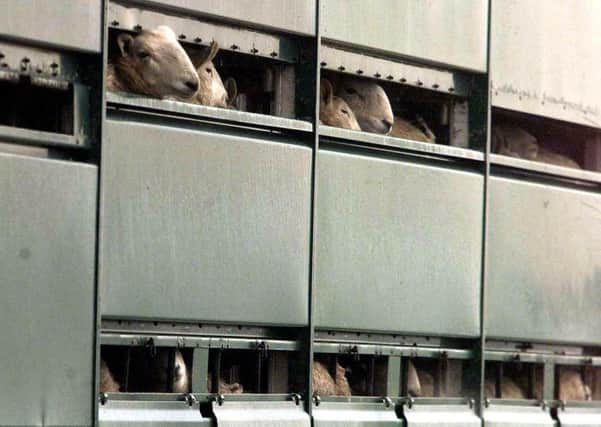Animal processors call for clean livestock at slaughter


According to rules set out by the Food Standards Agency, abattoirs are not allowed to slaughter dirty animals.
However, the wet weather of recent weeks has, in common with previous winters, led to more dirty livestock being presented for slaughter than at other times of the year, the Agriculture and Horticulture Development Board (AHDB) said.
Advertisement
Hide AdAdvertisement
Hide AdThe Clean Livestock Policy is designed to stave off the risk of animals carrying pathogens such as E. coli and salmonella which could cause food-borne illnesses in humans if they are transferred onto sterile carcase meat.
Steve Powdrill, AHDB’s technical manager, said: “Dirty stock can seriously impact the financial return to beef and lamb producers, as well as the impact to human health.
“If dirt is transferred on to the carcase, the contaminated meat is trimmed away which reduces the carcase weight and therefore the price paid. Most processors also deduct a charge for the additional work handling overly dirty livestock.
“With this in mind, it’s really important that food producers present clean animals, not only to ensure that they get the best possible returns, but to ensure the food produced is safe to eat.”
Advertisement
Hide AdAdvertisement
Hide AdMeat processor Woodhead Brothers uses the Clean Livestock Policy scoring system whereby cattle are scored for cleanliness on a scale of one (clean) to five (dirty) as they are unloaded at its processing plants.
Any that score three to five cannot be slaughtered without further action being taken.
Woodhead is operated by Bradford-based supermarket chain Morrisons and processes more than 3,400 cattle, 15,000 lambs and 28,000 pigs every week across its three sites in Lincolnshire, Lancashire and Aberdeenshire.
Michael Winchester, the business’ senior livestock manager, said: “In most cases, cattle will be clipped that day or left alive and slaughtered the following day. The cost of clipping is then charged back to producers.”
AHDB Beef & Lamb has produced videos to show best practice for livestock cleanliness and they can be viewed online via its YouTube channel, Beef & Lamb TV.